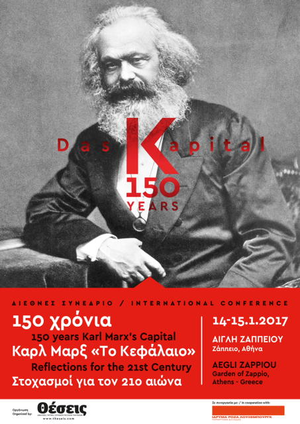… Marx himself considered his theory of surplus-value his most important contribution to the progress of economic analysis (Marx, letter to Engels of 24 August 1867). It is through this theory that the wide scope of his sociological and historical thought enables him simultaneously to place the capitalist mode of production in his historical context, and to find the root of its inner economic contradictions and its laws of motion in the specific relations of production on which it is based.
As said before, Marx’s theory of classes is based on the recognition that in each class society, part of society (the ruling class) appropriates the social surplus product. But that surplus product can take three essentially different forms (or a combination of them). It can take the form of straightforward unpaid surplus labour, as in the slave mode of production, early feudalism or some sectors of the Asiatic mode of production (unpaid corvée labour for the Empire). It can take the form of goods appropriated by the ruling class in the form of use-values pure and simple (the products of surplus labour), as under feudalism when feudal rent is paid in a certain amount of produce (produce rent) or in its more modern remnants, such as sharecropping. And it can take a money form, like money-rent in the final phases of feudalism, and capitalist profits. Surplus-value is essentially just that: the money form of the social surplus product or, what amounts to the same, the money product of surplus labour. It has therefore a common root with all other forms of surplus product: unpaid labour…
Read here

